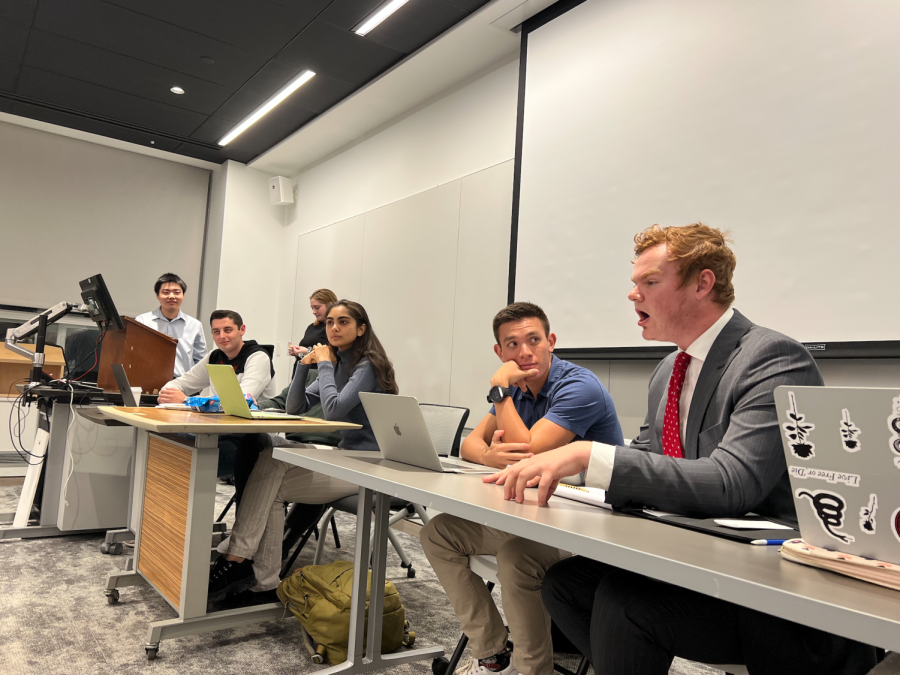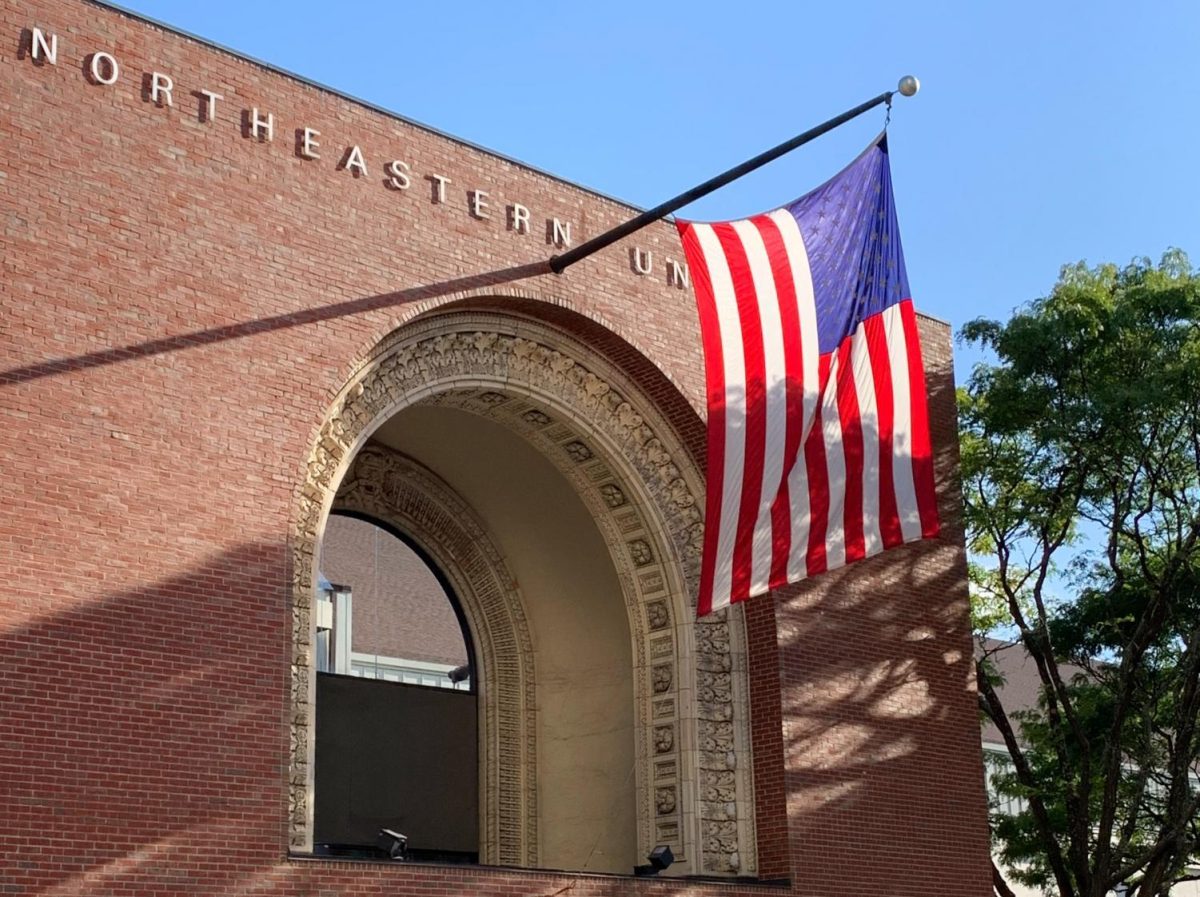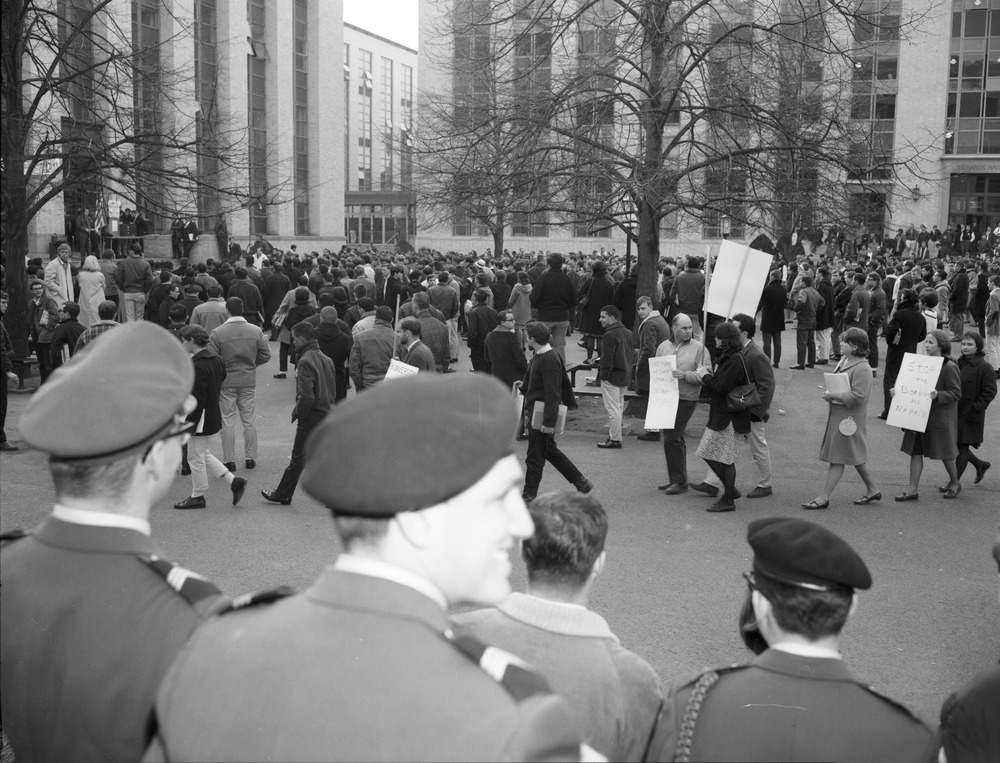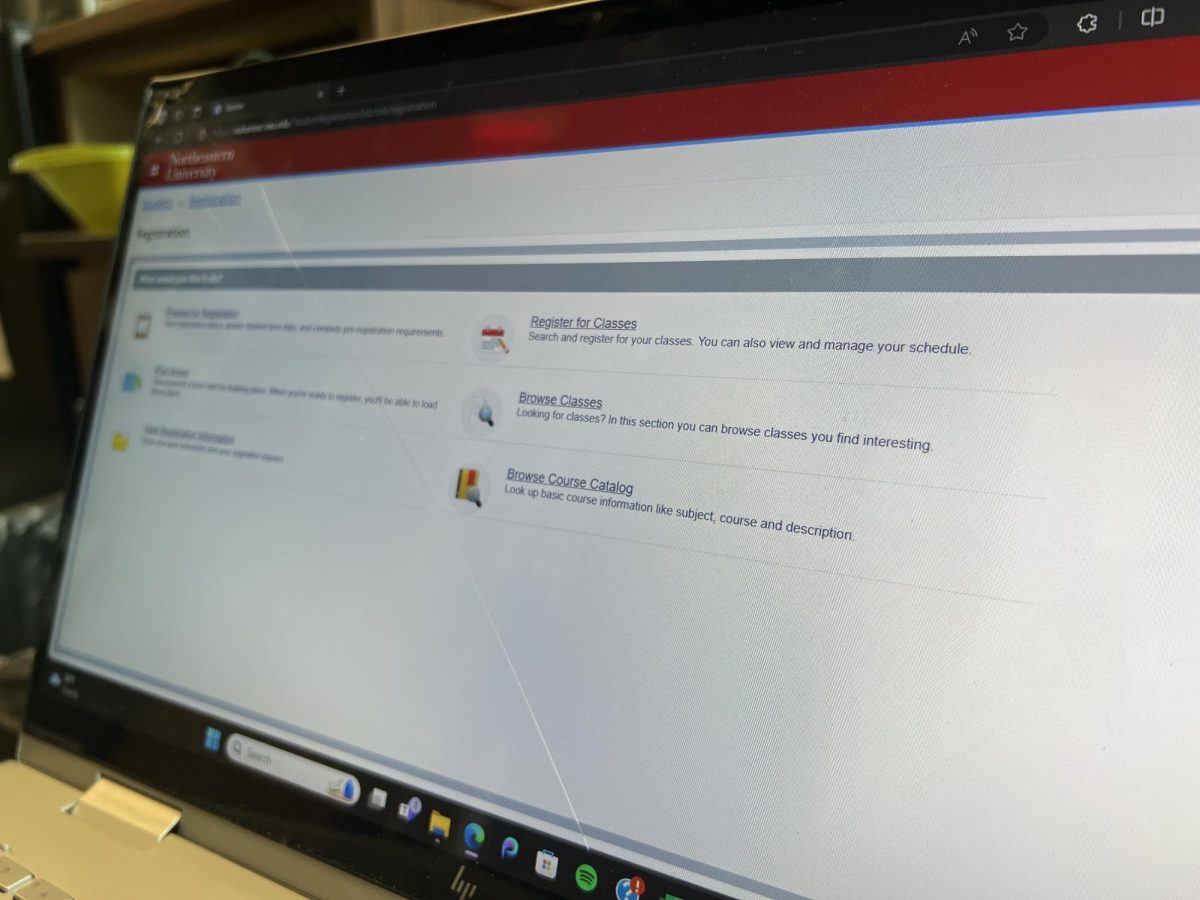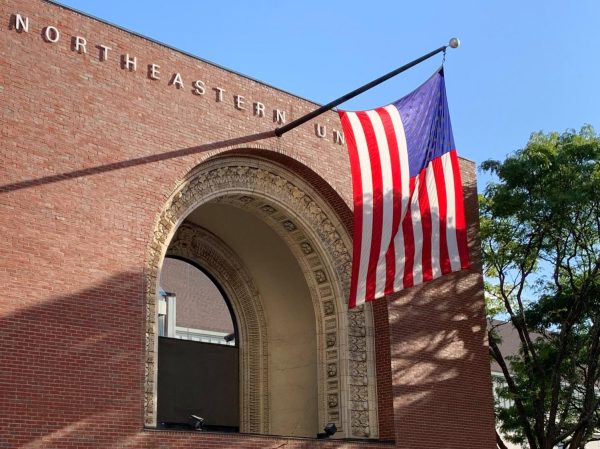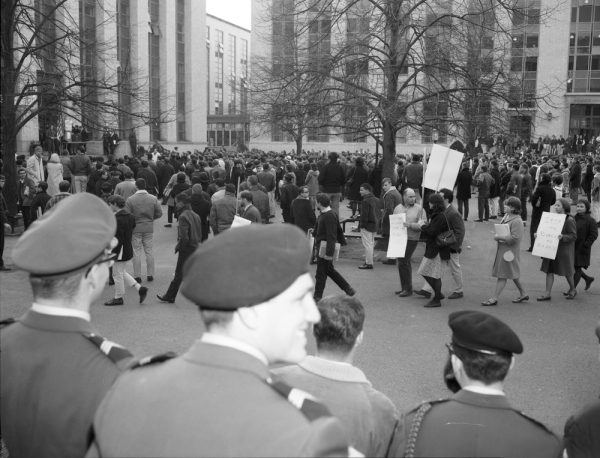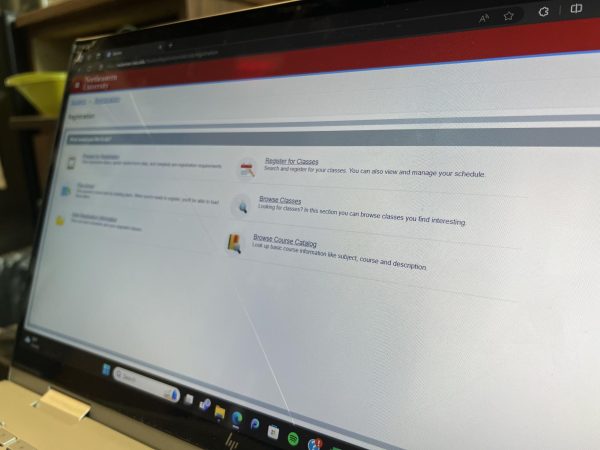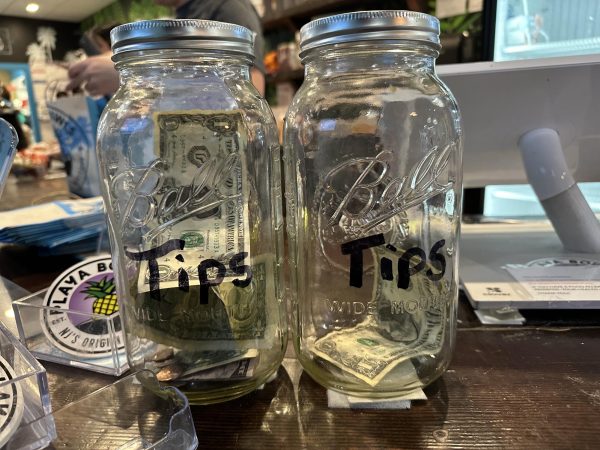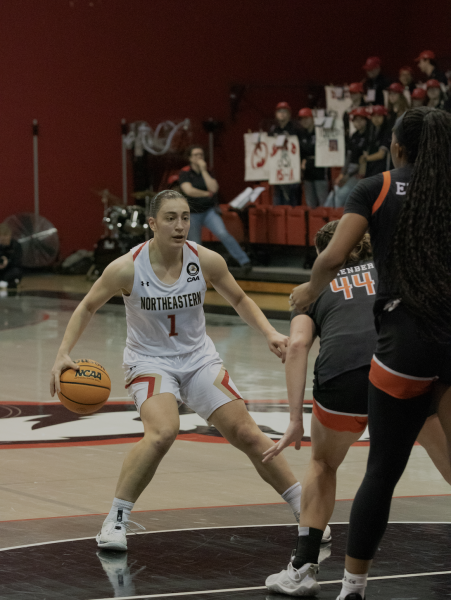College Democrats and College Republicans host debate in aftermath of Election Day
Members of the Northeastern University College Democrats and College Republicans met Nov. 10 for a debate in Richards Hall. The topics ranged from gun control to inflation.
November 22, 2022
Two days after the 2022 midterm elections, six Northeastern students met in Richards Hall to debate as representatives of Northeastern’s leading partisan political groups. The three students seated at the table on the left belonged to the Northeastern University College Democrats, or NUCD, and the three students on the right appeared on behalf of the Northeastern University College Republicans, or NUCR.
Rowan Van Lare, a fifth-year independent major in writing and media and the president of NUCD, said planning for the debate started at Northeastern’s Sept. 6 Fall Fest, when several campus political groups found themselves recruiting new members side by side.
Ronan Connolly, a second-year political science major and the NUCR treasurer, said the club leaders got a laugh out of the realization that their booth was in between NUCD and the Northeastern chapter of Young Democratic Socialists of America, or YDSA.
Discussions from that day sparked the idea for a debate. The topics were selected in advance: foreign affairs, the economy, crime and gun laws.
“[NUCR was] super on board which is exciting,” said Van Lare, who moderated the debate alongside NUCR president Alex Ichimura. “The opportunity to debate sort of fell through last semester, mostly on our part. So it was nice that we could actually do something and do something in person.”
The debate was structured in a similar format to traditional candidate debates, with 12 minutes allotted for each topic. The moderators ensured the debaters stuck to one minute for the prepared question, three minutes for each side to present opening arguments and five minutes of open debate.
Both sides respected the time limits and agreed to disagree on controversial issues. When the debate moved to political hot topics like gun control, however, the debaters raised their voices.
“You keep using the terminology ‘take away guns,’ and I don’t think there’s one Democrat in this room, and even not many in Congress, that are trying to [take] away all guns,” said Giovanni Falco, a second-year criminal justice and political science combined major debating for NUCD. “I think that’s a misconception across this country, that Democrats are gonna take away our guns. That’s just not the reality.”
Staunch defenders of the second amendment insist their right extends beyond possession to include access.
“Maybe not verbally, but they support it,” Connolly said. “Taking away your gun doesn’t necessarily mean we’re gonna bust into your home and steal it from a gun locker. It also means that we’re gonna take away your ability to get it.”
The debate shifted to the intended effects of gun control — stopping mass shootings, decreasing crime and lowering suicide rates. Falco expressed concern that kids are getting ahold of their parents’ guns to harm themselves and others.
“By increasing gun laws in this country, we can help stop that,” he said.
Connolly and Nalini Gunawardena, a second-year data science and economics combined major debating for NUCD, engaged in a heated back and forth about suicide. Connolly shared that he knows people who have been affected by it, and he believes it can’t be solved by gun control.
“If somebody is determined to commit suicide, they will find a way,” he said. “There are other ways, unfortunately, to kill yourself. … Taking away guns, yes it may reduce some, but that’s not an argument for very strict gun laws.”
Gunawardena referenced her knowledge of suicide hotline training.
“No they won’t,” she said. “I mean, that’s like a big thing you learn when you volunteer at suicide hotlines. It’s, ‘what is the means they have to commit suicide?’ Those moments are critical.”
Access to means is one of the biggest determiners of whether or not suicide is attempted and successful — and she said access to legally purchased firearms is one of the most common means in the United States.
The Republican debaters raised the point that suicide is a mental health issue, not a gun issue. The Democrats pressed the NUCR representatives on why Republicans don’t favor increased funding for mental health programs.
In keeping with the national party policy platforms, the Democrats were most argumentative about gun control and international climate change agreements, while the Republicans were eager to discuss inflation and rising crime.
“We’re seeing record inflation right now,” said Adam Lovellette, a fifth-year business administration major with NUCR. “We’re seeing housing rates that are increasing, mortgage rates that are increasing. We’re seeing the price of food and gas going up and the income taxes are already the largest burden of every American, regardless of socioeconomic status.”
He expressed concerns that income tax increases will alienate the wealthy and result in a less productive economy.
“I don’t know if passing tax increases on people that generate the most taxes for the state of Massachusetts is the best way to keep them here. I think it’s most likely going to deter people to move to more tax friendly states, and you’re going to see a decrease in overall money that you make on this tax,” said Lovellette.
During the five minute open debate period, both the Republicans and Democrats launched questions back and forth.
While discussing progressive tax rates, second-year political science and economics combined major Bledar Velic said, “Do you drive on highways? Do you go to the hospital? Do you call the police when there’s something wrong?”
Connolly got a laugh out of the room with his retort. “No. Because you defunded them,” he said.
When the debate wrapped up, the debaters for both sides shook hands and smiled for a picture.
Jillian Fernau, a first-year mathematics major who is a member of NUCR, said that she came to watch the debate with her friend because they were interested in hearing what both sides had to say.
“[Without open conversation], nothing is gonna get solved. There’s only echo chambers on either side. Literally nothing is gonna get done,” she said. “I think it’s really important to have these conversations.”


